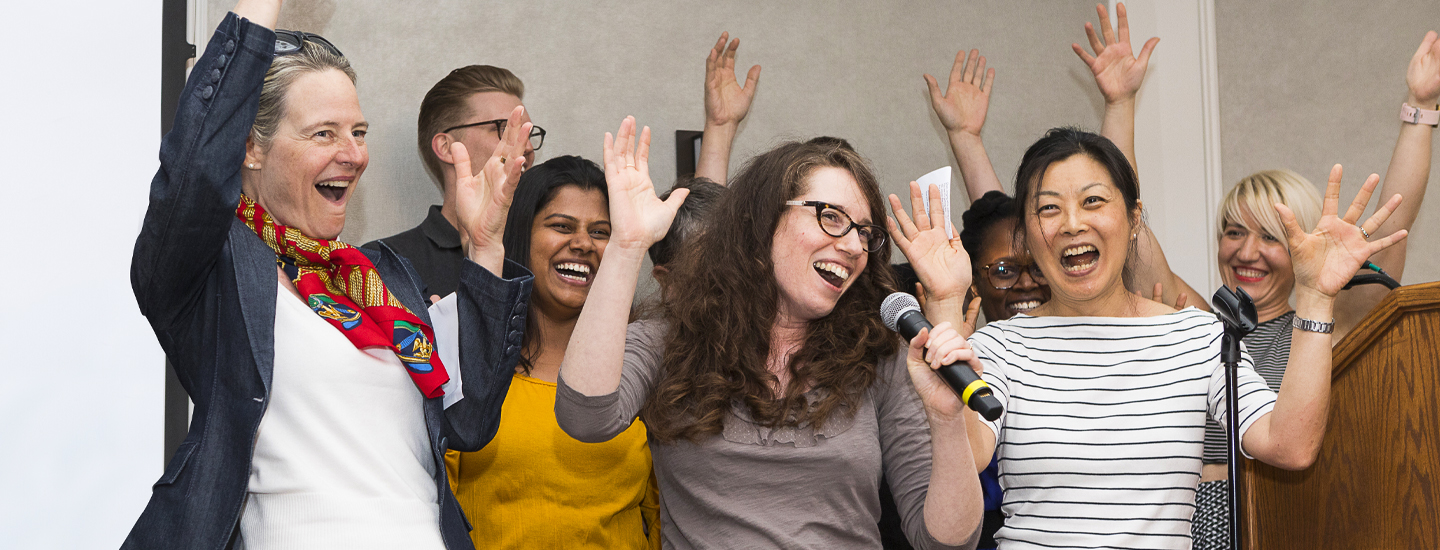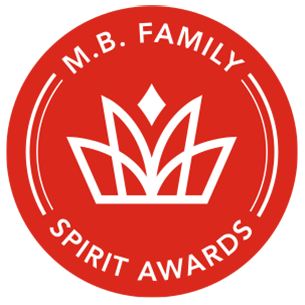
Our Employees Make Us Who We are
At United Way Greater Toronto, a high-performance culture is foundational to who we are as an organization. We recognize that the daily leadership, creativity, motivation, and dedication of our employees allow us to achieve success and create a positive impact on our community. We are happy to recognize our employees’ amazing work!

The M.B. Family Spirit Awards provide us with an opportunity to recognize and reward the extraordinary contributions of colleagues who have distinguished themselves and demonstrated UWGT’s cultural behaviours.
M.B. Family Spirit Award: Culture Champion Recipients
Anupma Sharma
During visits to our Inclusive Employment (IE) Community partners, Anupma heard repeated interest from agencies in connecting with Unions to explore training and job opportunities, particularly in the trades. In response, Anupma presented a vision for an IE Union Open House to the team, aiming to facilitate connections and collaboration between Unions and agencies. Fast forward to May 3, 2024, when the IE team hosted over 50 community partners and several staff from three Unions at UWGT’s York Region Office. The event featured a panel where an agency and a Union discussed their partnership, its impact, and mutual benefits. Attendees also had the chance to connect one-on-one with Unions in a speed-dating format, and learn more about UWGT’s Inclusive Employment Strategy.
Federico Vargas
ILEO is all about collaboration, and Federico personifies this approach, recognizing the value in every person and every organization. Although fundraising is not part of his job, Federico arranged for a donation from one of the ILEO partners to underwrite the costs, and then ensured the donor was appropriately recognized. The entrepreneurs netted almost $19,000, participating in the most successful market since the program began. Throughout the process, stories changed; journalists changed, and the people being interviewed changed; but Federico just kept working towards the final product. He connected the writers with their subjects and always made sure that everyone was getting what they needed to make the stories come alive.
Victoria Nixon-Cammick
Victoria has built and continues to build strong relationships within United Way. She collaborates with others across a variety of teams. In fact, knowing she serves on the Content Contributors Committee with P&C, on our Reconciliation, Equity, Anti-Racism, Diversity & Inclusion (READI) Committee, our Internal Campaign committee, on our Pride Committee, and has even carved out some time to work with the ILEO team, it might be a shorter exercise to list the teams and committees she isn’t involved with. For more than 10 years, Victoria has been a contributor to the United Way mission. First, as a resource developer for United Way York Region before joining as a member of United Way Greater Toronto. To say Victoria is a remarkable fundraiser is an understatement. Besides being wickedly smart and super strategic, she’s also got a knack for asking donors for gift increases in times when we need it most, all while deepening that donor’s affinity for our work in community.